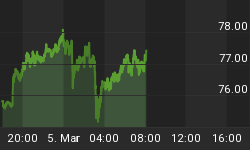The U.S. economy is in uncertain times. Analysts are split between those seeing recovery and those fearing a second downturn. This confusion is being echoed in the highest levels of government as President Obama simultaneously speaks about the need for more federal spending and warns of the dangers of increased debt. As the volatile markets indicate, investors are not only confused - they are seriously concerned.
The country appears to be going through a period of buyer's remorse over the election of Barack Obama. The majority cobbled together by the President one year ago included the Democratic base, independents hoping for "change," and many disaffected Republicans betrayed by the Bush Administration's big-government neoconservatism. It is unlikely that most of these voters favored an overt push toward socialism; however, this is what they have received. As the 'tea parties' illustrate, voters are not only confused - they are seriously concerned.
These concerns are justified. The Administration's hard-left turn was evident from the outset. Ignoring expert advice to spend on job-creating infrastructure, Obama spent wildly on entitlements. Now, with rising grassroots discontent, a falling currency, and threats to America's AAA credit rating, there is some evidence that the Administration is trying to hedge its bets through tough talk. Yet, they still have not taken any tough action. As their gold stockpiling highlights, foreign governments are not only confused - they are seriously concerned.
Over at the Federal Reserve, no such soul-searching appears to be underway. Its chairman, Ben Bernanke, is clearly intent on avoiding deleveraging. He has charted a course of massive liquidity injections, financed by hitherto unimaginable levels of monetary inflation. He has even attempted to coordinate these expansionary policies on an international basis.
For the moment, the cheap liquidity has saved Wall Street. To the delight of the Goldman Sachs, et al., the Fed has created a boom in financial assets, including equities, bonds and commodities. These rallies have stimulated a nearly universal belief that the worst has past. This feel-good attitude could be clearly seen on a recent cover of The Economist that read: "After the Storm - How to Make the Best of the Recovery."
But, to many people, life looks increasingly desperate. Official U.S. figures admit to some 15 million unemployed. Despite the massive stimulus packages, American consumers are still in shock and not spending as they once did. Already, the fall in consumer demand is larger than that of the early 1930's. The authorities now face a moment of truth: admit that they don't have the power to bring the consumer back to life or redouble their efforts, consequences be damned.
The whole world awaits the decision, which could indicate a wild inflation, a major recession or the worst of both.
Should the Administration accept, or even be forced to accept, an ultimately healthy deleveraging, a deep recession would ensue. Entitlements would have to be dramatically reduced while taxes remain unreasonably high. Otherwise, the federal government could face outright default. Barring a popular revolt, this course would lead to a sustainable recovery.
On the other hand, if the government continues to run the printing presses, as seems far more likely, hyperinflation will become a distinct possibility. While this may create the appearance of recovery, with rising stocks and less short-term unemployment, average citizens will notice a sharp decline in their standard of living. It will get harder and harder to 'make ends meet' as wages increase less than the cost of everyday goods.
The hyperinflation scenario will likely buy the Administration a little more time, but would eventually give way to the worst of all possible worlds: hyperinflationary depression. Here, America would feel a deep recession concurrent with rising prices - similar to what we're seeing right now with gold. This is truly a devastating outcome and should be avoided at all costs.
America is at a crossroads. It is important in these times to have leaders we can trust to make the right decisions, even if they are unpopular. Obama, Bernanke, Reid, Dodd, Pelosi, Frank... These are not names that are trusted to make wise choices over expedient ones. The markets know it; the voters know it; and, judging by the price of gold, the rest of the world knows it too.
For a more in-depth analysis of our financial problems and the inherent dangers they pose for the U.S. economy and U.S. dollar, read Peter Schiff's 2008 bestseller "The Little Book of Bull Moves in Bear Markets" and his newest release "Crash Proof 2.0: How to Profit from the Economic Collapse." Click here to learn more.
More importantly, don't let the great deals pass you by. Get an inside view of Peter's playbook with his new Special Report, "Peter Schiff's Five Favorite Investment Choices for the Next Five Years." Click here to dowload the report for free. You can find more free services for global investors, and learn about the Euro Pacific advantage, at www.europac.net.















